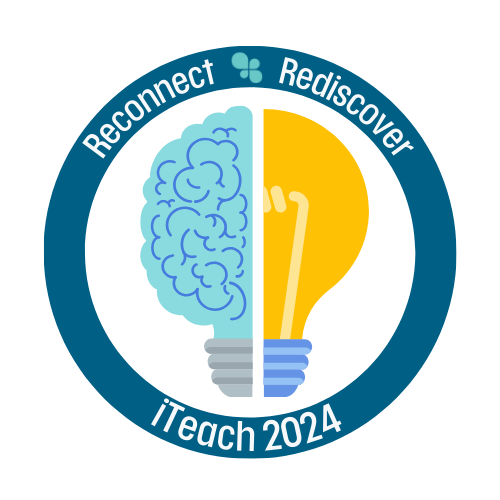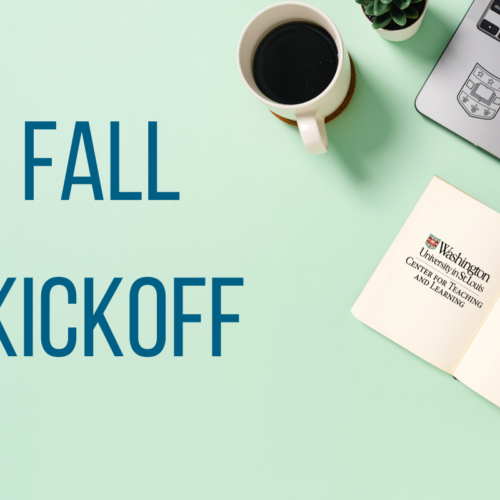
Spring Forward with the CTL in January 2023
Program Offerings with the CTL in January
The CTL will offer a number of virtual conversations and other events in the two weeks prior to the start of the spring semester. These events are open to anyone teaching this spring at WashU. Most of this program will take place via Zoom and includes events in 4 areas:
Please join us and get ready to “spring forward” into the new semester. To search by date, please visit our events page.
Course Design Institute
January 3rd – January 9th
Redesigning a course over break? Tackling a new-to-you course or a brand new course in the spring? New to WashU and/or new to designing your own course? The CTL’s Course Design Institute (CDI) is for you!
This week-long course design institute will guide participants in planning and preparing to teach a course that is supported by the latest research in teaching and learning. During the CDI, facilitators will model and discuss a range of tools and strategies that can enhance your instruction, increase student engagement, ensure alignment between course goals and assessments, and establish an inclusive learning environment for your students. Participants who fully engage in the program will leave with a major portion of their course planning finished, including clearly delineated learning goals, an assessment/assignment plan, strategies for student engagement and Canvas use, a draft of the syllabus and course policies, and a detailed plan for the first day of class.
The CDI will be conducted through a combination of daily self-paced learning modules in Canvas and three synchronous online meetings via Zoom. Overall time commitment for participating includes 3.5 hours of live engagement, plus an average of 2-3 hours each day for asynchronous work in Canvas (reading, watching videos, working on drafting aspects of your course). Those who sign up must commit to attending all 3 live sessions and to doing the asynchronous work.
Register here or contact Dr. Meg Gregory with questions.
Virtual Conversations
Putting Your Student Evals to Work in the New Semester
Facilitated by Dr. Rick Moore, Assistant Director for Assessment and Evaluation
You’ve received your student course evaluations from last semester, but now what? In this session, we’ll discuss how to interpret your evals – good or bad – and how to use the results to inform your teaching in the new semester.
Adopting Inclusive Syllabus Language
Facilitated by Dr. Meg Gregory, Associate Director for Faculty Programs
In addition to providing important university policies and acting as a reference guide for course logistics and requirements, the syllabus is likely one of the first places where students will begin to become acquainted with you and your course. As such, it can begin to set a positive, inclusive tone for the semester ahead. In this virtual conversation, we will discuss aspects of the syllabus that can help demonstrate your commitment to an inclusive learning environment where all students have the opportunity to feel like they belong.
Considering Religious Observances in Course Planning
Co-sponsored with and facilitated by staff from the Office of Religious, Spiritual, and Ethical Life
In this virtual conversation with staff from the Office of Religious, Spiritual and Ethical Life, faculty will learn about ways to support students’ observances of religious holidays that overlap with the semester. We’ll share key information about the new Religious Holiday Class Absence Policy and provide tips for helping all students feel included and respected while also keeping your courses on track.
Forming Pedagogical Partnerships with AIs and TAs
Facilitated by Dr. Denise Leonard, Associate Director for Graduate and Postdoc Programs
In this virtual conversation, we will share and discuss best practices on how faculty can support their graduate and undergraduate students who have an instructional role in courses and together, co-create an inclusive teaching and learning environment.
Bringing the Museum to Your Classroom
Co-sponsored by the Mildred Lane Kemper Art Museum and facilitated by José Garza, Museum Academic Programs Coordinator.
In this virtual conversation, instructors will learn about resources at the Mildred Lane Kemper Art Museum to consider for Spring semester planning, including upcoming exhibitions and custom-designed tours. We’ll share ways to incorporate art into course curriculum across a range of disciplines and provide some examples of how teaching with art can support visual literacy and critical thinking.
Welcoming Students on the First Day of Class
Facilitated by Dr. Eric Fournier, Director of Educational Development
Explore how first day activities can create a welcoming, inclusive classroom atmosphere that will boost student’s sense of belonging and enhance their learning experience throughout the semester.
Creating Accessible and Interactive PDFs for Digital Reading
Facilitated by Dr. Sally Wu, Assistant Director for Educational Technology
Students read on screens all the time, but due to constraints in digital reading tools, they may not be engaging deeply with the new ideas, worlds, and people available at their fingertips. This virtual conversation introduces several ways to support digital reading, particularly when reading with PDFs, a common document file type provided to students through Canvas and other tools. We will discuss how to make PDFs accessible and interactive for all students, coupled with instructional tools and strategies that help students engage more deeply with their reading materials in your classes.
Quick Tips for Responding in the Moment to Students in Distress
Co-sponsored by Habif Student Health and Wellness and facilitated by Dr. Jodi Seals, Health Promotion Specialist
Build your confidence to respond to student needs in this 30-minute session by adding more communication tools to your toolbox. Learn strategies and language to respond to students of concern during in-person meetings and via email communication. Learn what resources are at your fingertips to help students in crisis.
Reconceptualizing Office Hours
Facilitated by Dr. Meg Gregory, Associate Director for Faculty Programs
While we set aside office hours each semester as an opportunity for students to come visit us if they need extra support in our classes, often this time remains an underappreciated, underutilized resource. In this virtual conversation, we will take a closer look at what research says about why students, especially those who most need them, often don’t come to office hours. Then, we’ll discuss ways to reconceptualize office hours to make them more effective, better attended, and more welcoming for all.
Tech Trainings
Teaching in Pooled Classrooms
Facilitated by Doug Hughey, Classroom Services Manager and George McKinney, Lead Classroom Tech
This session will introduce the equipment installed in WashU pooled classrooms and show you how to use different technologies within the room, with our Classroom Services staff who know the ins and outs of each classroom.
Introduction to Hypothesis
Facilitated by Dr. Sally Wu, Assistant Director for Educational Technology
In this training, we will explore Hypothes.is, a tool which enables users to place a conversational layer over an entire webpage or an OCR’d PDF, allowing for unique collaborative, interactive engagement with the text that students have been assigned to read. It enables sentence-level annotation, notetaking, and critique on top of written content and is fully integrated into Canvas. We’ll discuss some different pedagogical uses for this tool in your classes.
Fostering Social Connection and Collaboration through Videos
Facilitated by Dr. Sally Wu, Assistant Director for Educational Technology and Doug Hughey, Classroom Services Manager
Videos are a great way to deliver content and share ideas from around the world from TED talks, YouTube videos, recorded lectures, and more. However, video watching can be an isolating and passive experience if students cannot engage with others. We will discuss how to promote student engagement in videos using Kaltura and Annoto, two tools integrated in Canvas. These tools allow students to watch and share videos as well as discuss and connect with one another without leaving the video.
Using Padlet for Intros, Brainstorming, Discussion, and More
Facilitated by Dr. Sally Wu, Assistant Director for Educational Technology
Get insights and ideas from all of your students at once with Padlet, a virtual pinboard, that allows users to easily share text, images, files, and more. We will discuss various ways to use Padlet in and out of your classroom.
Introduction to Poll Everywhere
Facilitated by Dr. Sally Wu, Assistant Director for Educational Technology
This session will walk through how to use the polling software Poll Everywhere to increase student engagement and to gauge student learning. We’ll look at the different types of questions that you can ask and show you how to get started with Poll Everywhere for both in-person and online synchronous courses.
**special hour-long session**
Introduction to Piazza
Facilitated by Dr. Sally Wu, Assistant Director for Educational Technology and Ryan Bradford, Piazza Representative
Save time answering the same questions in emails and allow students to help each other by using Piazza as a class Q&A discussion forum. This session with Dr. Sally Wu and Piazza’s Ryan Bradford will demo how you can set up a space for students to easily pose and answer questions as well as poll and announcements to connect your students with each other and your teaching team.
**special hour-long session**




